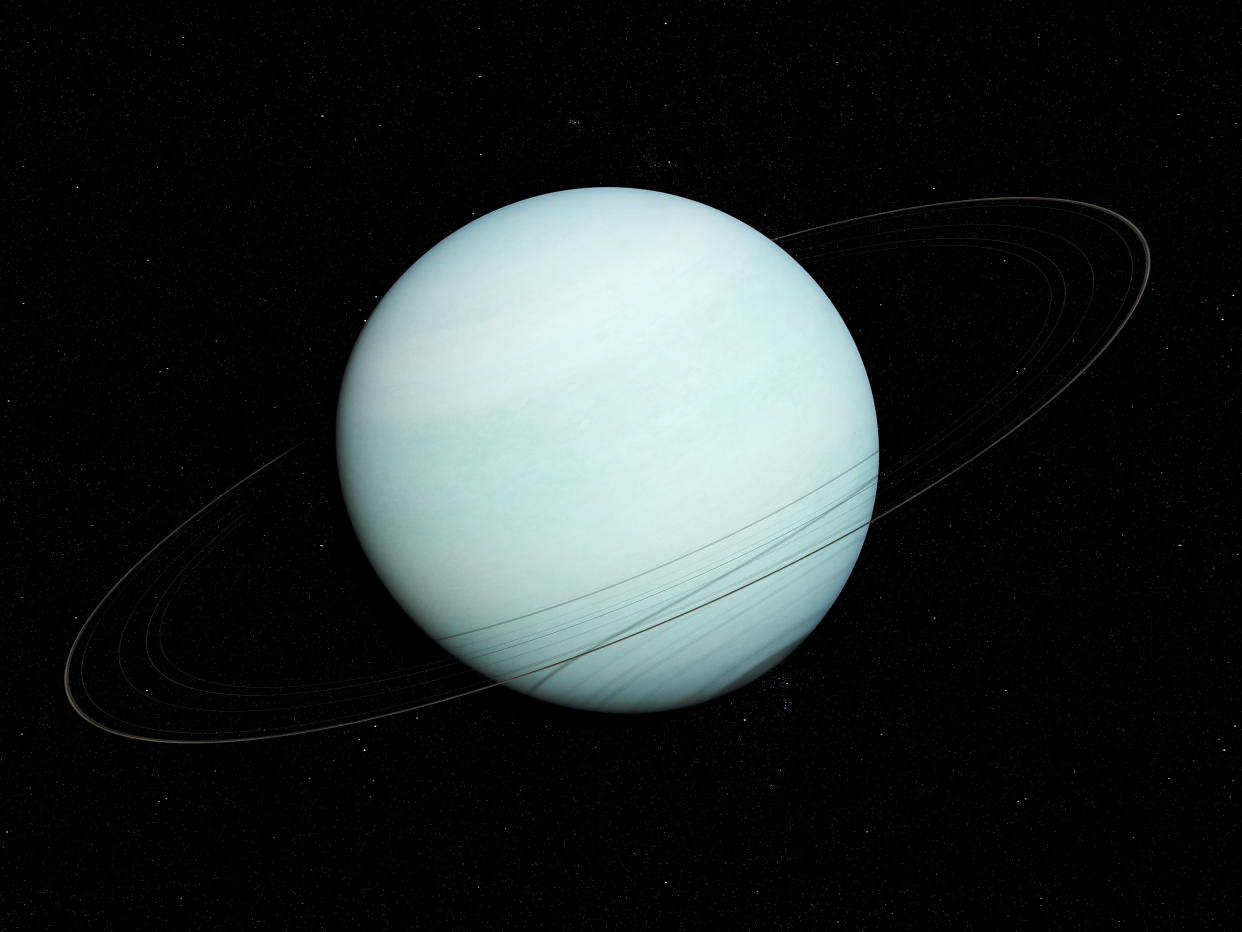Uranus should be next focus for NASA, report advises

Uranus should be the next target for NASA’s spacecraft, a once-a-decade report by a panel of American scientists has said.
The ‘decadal study’ is prepared by the US National Academies of Sciences, Engineering, and Medicine at NASA’s request, and helps to steer targets for the space agency in the next decade.
Uranus is the third-largest planet in our solar system, but it’s not been studied a huge amount, as it’s 19 times further from the Sun than our Earth is.
The report says, ‘The committee prioritises the Uranus Orbiter and Probe (UOP) as the highest-priority new flagship mission for initiation in the decade 2023–2032.’
Read more: Scientists warn dangerous space rocks could be hiding in meteor shower
The Uranus Orbiter and Probe (UOP) would conduct a multiyear orbital tour to transform knowledge of ice giants in general, and the Uranian system in particular.
It would do this through ‘flybys’ of the planet and the delivery of an atmospheric probe.
The report states that a launch within the 2023-2032 decade is viable on currently available launch vehicles.
The second-placed choice is to search for life on Saturn’s icy moon Enceladus.
Geyser-like plumes of ice erupt from the surface of Enceladus, hinting that life could lurk in the moon’s subsurface ocean.
Read more: Huge meteor explodes in the sky above Derby
“This report sets out an ambitious but practicable vision for advancing the frontiers of planetary science, astrobiology, and planetary defense in the next decade,” said Robin Canup, assistant vice president of the Planetary Sciences Directorate at the Southwest Research Institute, and co-chair of the National Academies’ steering committee for the decadal survey.
“This recommended portfolio of missions, high-priority research activities, and technology development will produce transformative advances in human knowledge and understanding about the origin and evolution of the solar system, and of life and the habitability of other bodies beyond Earth.”
Casey Dreier, senior space policy adviser for research nonprofit the Planetary Society told the BBC, “It’s very likely to me that the Uranus orbiter will happen.“This kicks off an interesting process of morphing ideas and words into metal and technology of spacecraft that takes decades.”
Watch: Why is Uranus shooting plasma bubbles?


